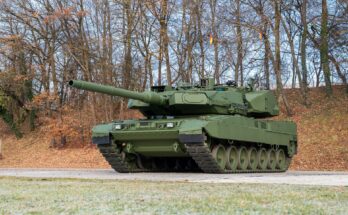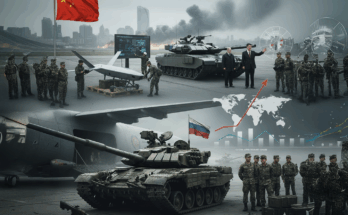Kazakhstan’s Minister of Defense and Aerospace Industry, Beibut Atamkulov, discussed initiatives for the Kazakh defense industry before parliament this week.
The Kazakh military seeks to produce as much of its needs locally as possible and, to that end, the Ministry of Defense and Aerospace Industry is hoping to smooth the process of developing the country’s industry.
Moving forward, Kazakhstan aims to expand technical education to support development and innovation in the arms industry. Minister Atamkulov bemoaned the ‘brain drain‘ that Kazakhstan faced during difficult times in the Kazakh economy after independence, when many professionals emigrated, primarily to Russia. As Kazakhstan’s industry is geared towards electronics and space technology, the brain drain had a significant impact on defense technology development.
He highlighted the need to address standards in industry practice, in order to lessen the risk of corruption in the defense industry. Minister Atamkulov noted that improving the regulatory framework governing the arms industry will lead to improved products. He noted, “The unresolved nature of this problem leads to corruption risks from customers and executors” of state defense contracts.
Minister Atamkulov stated, “To date the Ministry has analyzed the existing mechanism of the state defense order, which demonstrates the need of its improvement, including enhancing the transparency and efficiency in using of the budgetary funds.”
The minister has drawn up plans to improve the framework over the coming five years, creating more transparency in the Kazakh defense industry.
Another benefit from an improvement in oversight is the added confidence it will give investors in the Kazakh industry. Minister Atamkulov pointed out that Kazakhstan is prioritizing working with foreign firms that are willing to establish local production in the country and transfer technology. Doing so will support the Kazak industry and provide large numbers of jobs for Kazakh citizens. He cited Kazakhstan Aselsan Engineering, a joint venture with Turkey’s Aselsan, which has provided millions of dollars’ worth of electronic equipment to Kazakh security agencies.
Kazakhstan has put 60 Arlan military vehicles — produced under license as part of a joint venture with South Africa’s Paramount Group — and is looking to add another 30 vehicles into service in the coming year. Furthermore, the 405th ARP, located in Almaty, will soon begin assembling Mi-8/17 helicopters, presumably both civil and military variants.
Minister Atamkulov stated, “We plan to organize large-scale assembly of Mi-8/17 helicopters at the Aircraft Repair Plant in Almaty. This year we must start the first stage of the helicopter assembly.” He added, “This model [of helicopter] has proven itself as very useful both for national economy and the armed forces of many countries.” Kazakhstan will also conduct repairs on 14 military transport aircraft at the 405th ARP this year.
Kazakh firms are partnering with foreign firms to produce small arms in the country.
Aside from supplying its own military, Kazakhstan is also looking to become an exporter of military systems to its neighbors in Central Asia as well as further afield, in the Middle East and Europe.
Military markets analyst, covering Eurasia, Middle East, and Africa.




